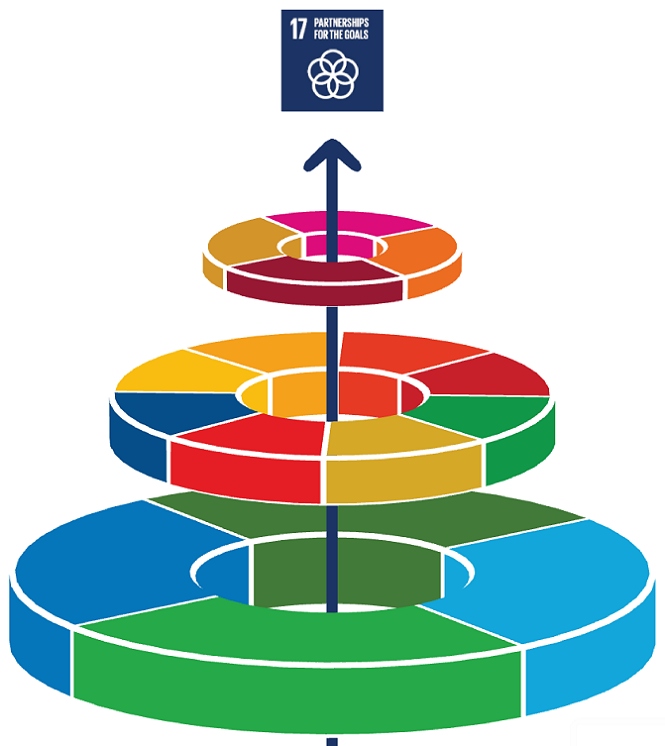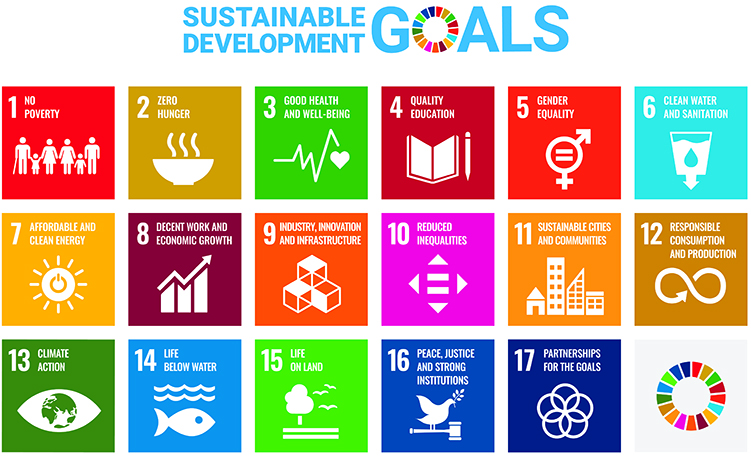Unit 4: Towards new futures – a role for partnership
Introduction
Welcome to Unit 4 of Sustainable pedagogies.
Meeting the 17 Sustainable Development Goals (SDGs), as set out by UNESCO (Figure 1) and ratified by its member countries, becomes more and more urgent as the world suffers an increase in climate-related events such as wildfires and flooding. These events are directly attributable to human activity affecting the climate.
The idea of partnership is part of SDG 17 which is about revitalising global partnerships for sustainable development. The SDG agenda needs to be universal and call for action by all countries – developed and less well-developed – because actions by and within one country can be seen to affect every country. Therefore, meeting all the SDGs requires partnerships between governments, the private sector, and civil society, which is why partnership runs through all other goals.
Figure 2 shows partnership running through the three layers of SDGs and the layer each SDG relates to:
- Biosphere (base) – SDGs 6, 13, 14, 15.
- Society (middle) – SDGs 1, 2, 3, 4, 5, 7, 11, 16.
- Economy (top) – SDGs 8, 9, 10, 12.

Working with others may seem like an obvious approach to sustainability but it is in considering why and how partnership is so important that the imperative to act that way is understood. Partnership links to other aspects of sustainable pedagogy (transdisciplinarity, compassion, participation) discussed in this course and cuts across many other pedagogies.
In this unit, we will discuss not just how to use partnership as a pedagogy but also how important it can be to exemplify it to learners so that they see and understand its power. This unit outlines what partnership means and why this term is used as opposed to collaboration. It also looks at the tensions that exist in conventional pedagogies and how partnership can address these. The unit ends by giving you a chance to consider what partnership might look like to you.
Remember, to obtain your digital badge, you must have posted a contribution to at least one forum discussion in Units 1–7 and one of the forum discussions in Unit 8. You must also have completed the quiz at the end of Week 5 and scored at least 80%.
The items labelled ‘Explore’, which have the binoculars ![]() icon beside them, are optional and are offered for those who want to explore the ideas being discussed further.
icon beside them, are optional and are offered for those who want to explore the ideas being discussed further.
Next go to Unit 4 learning outcomes [Tip: hold Ctrl and click a link to open it in a new tab. (Hide tip)] .

